

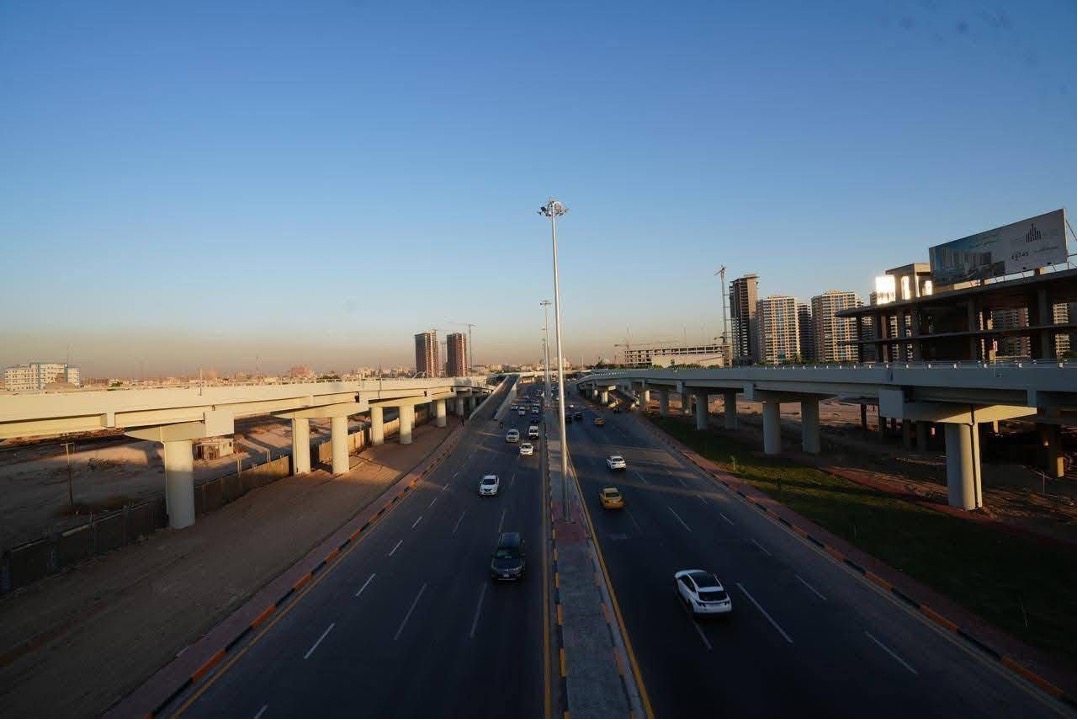

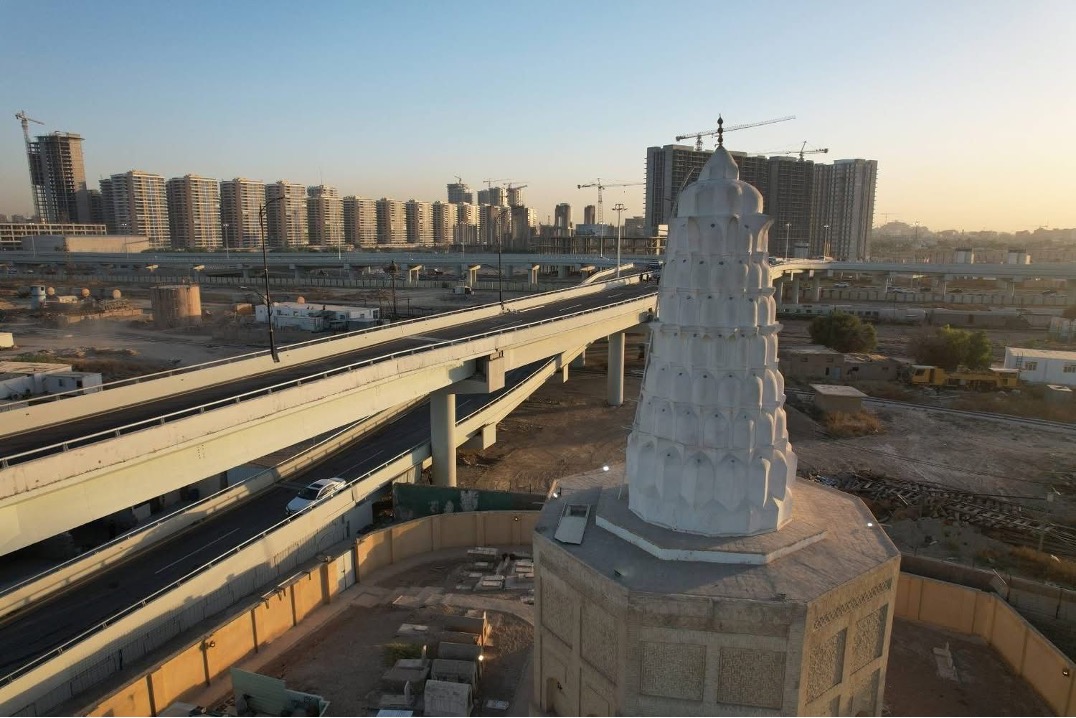
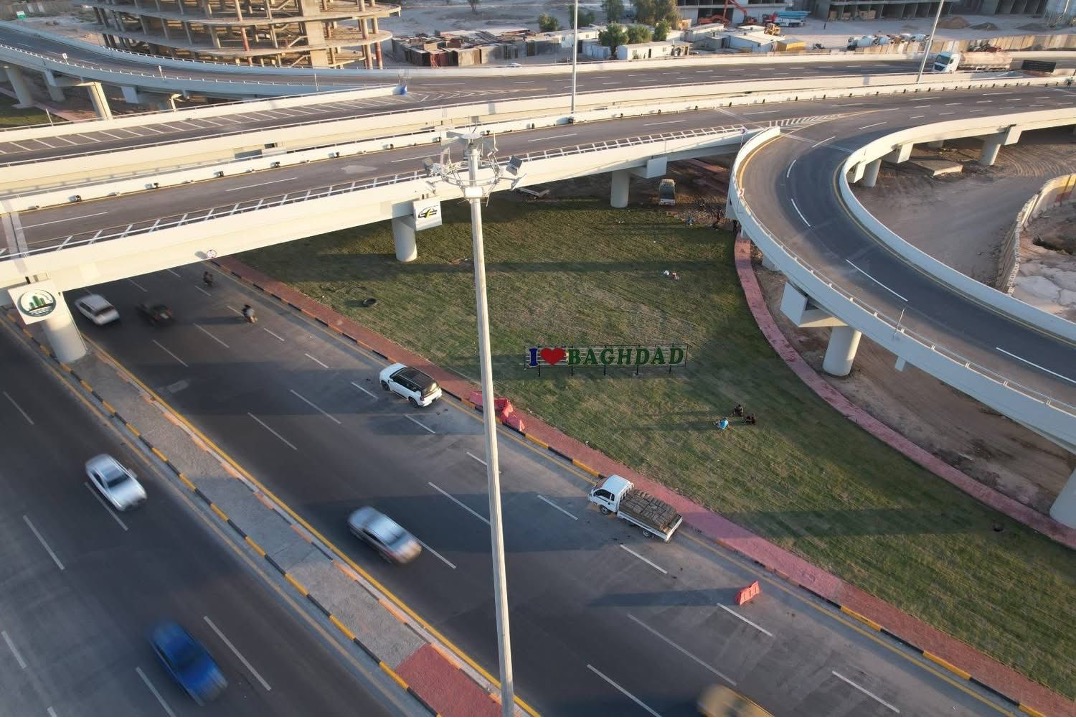
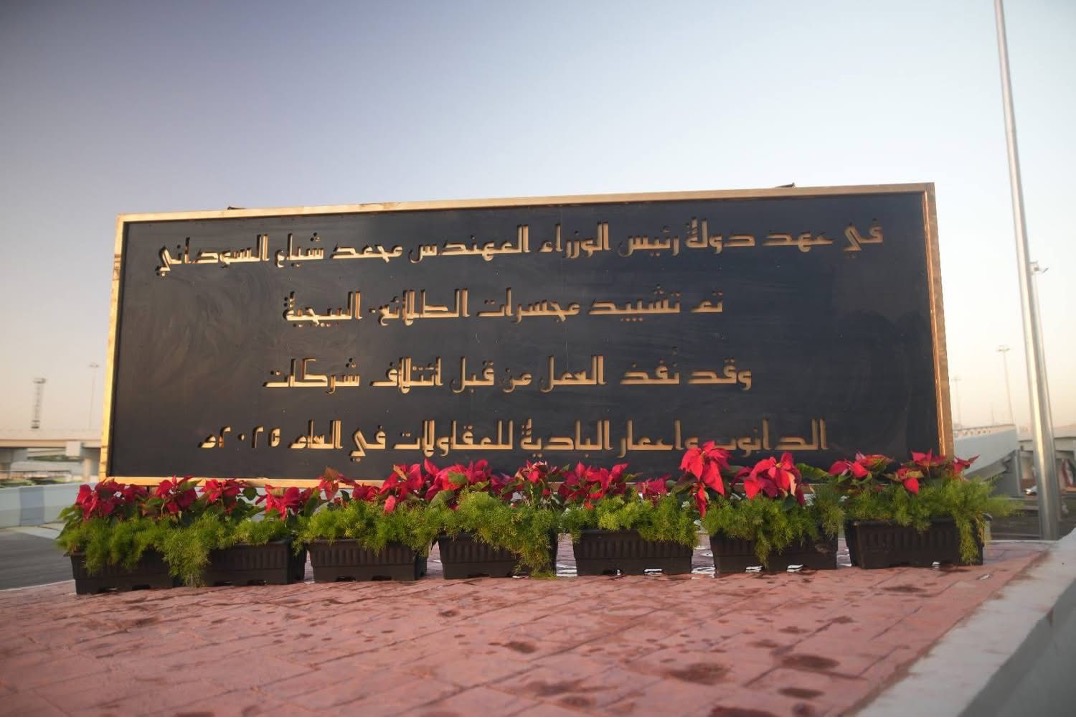
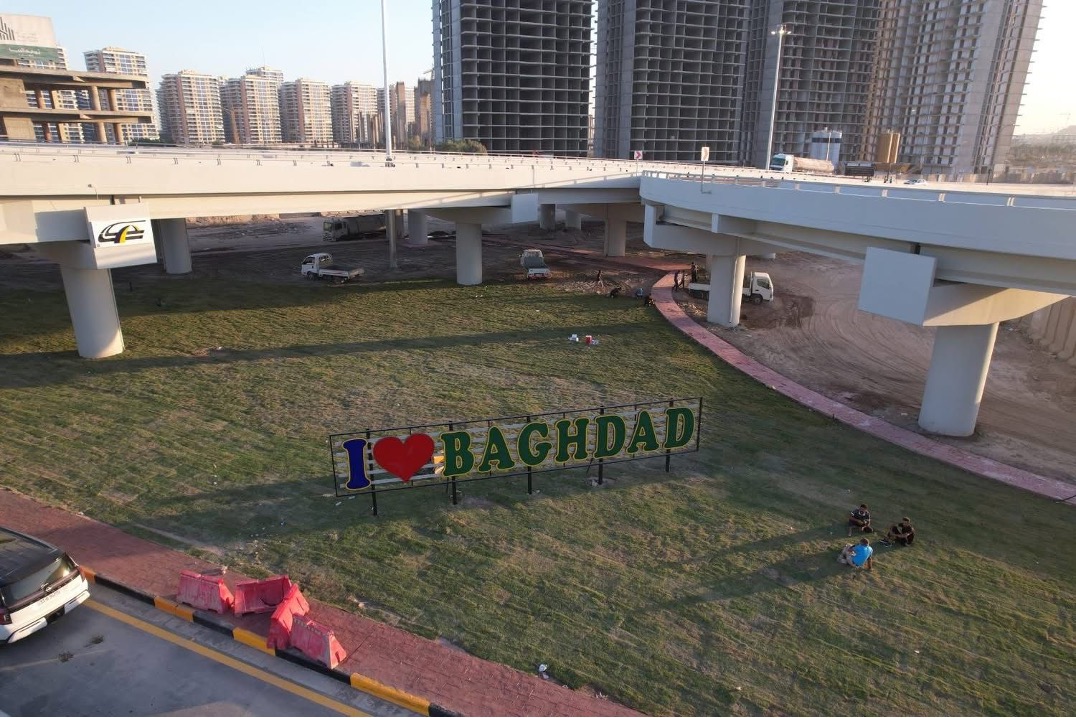
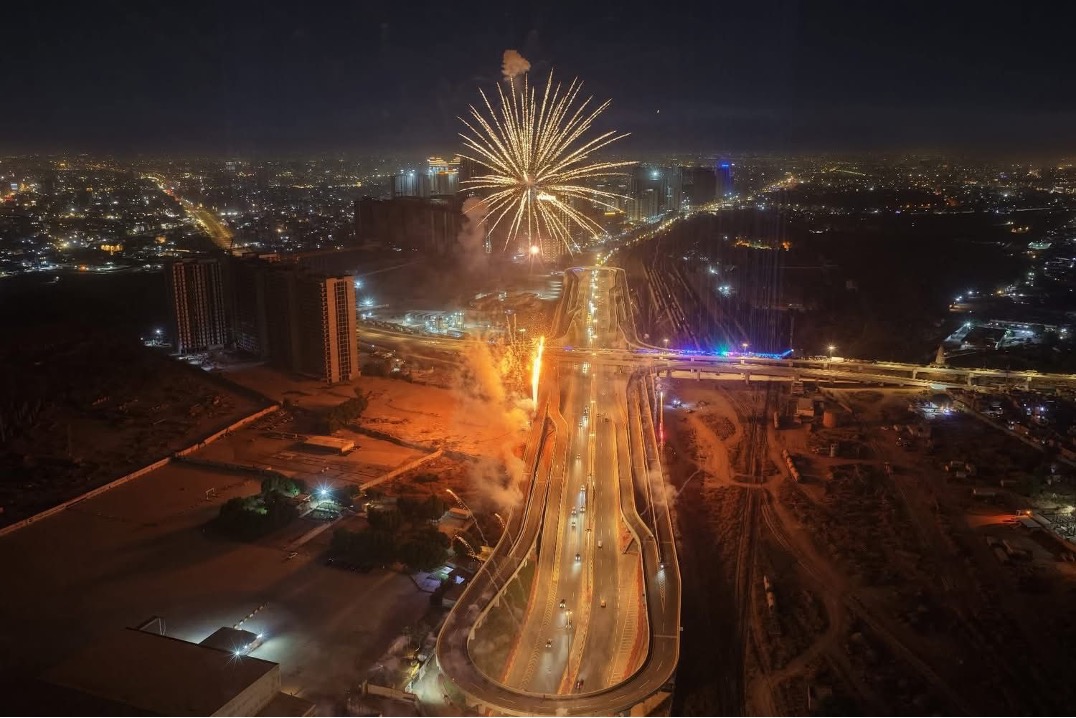
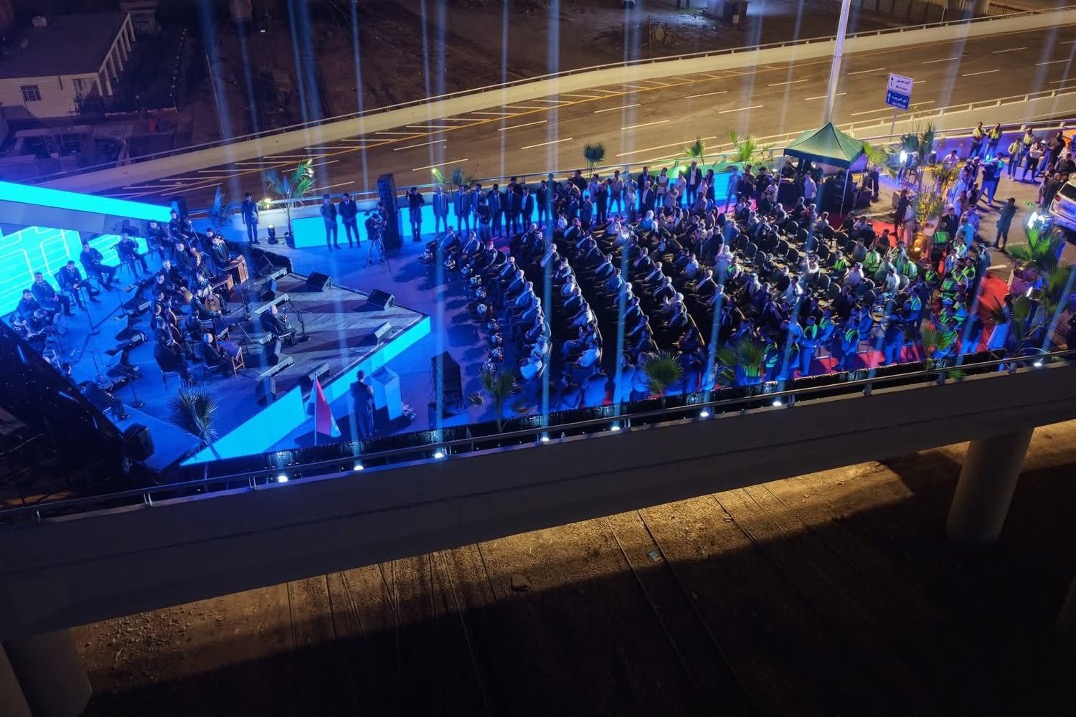
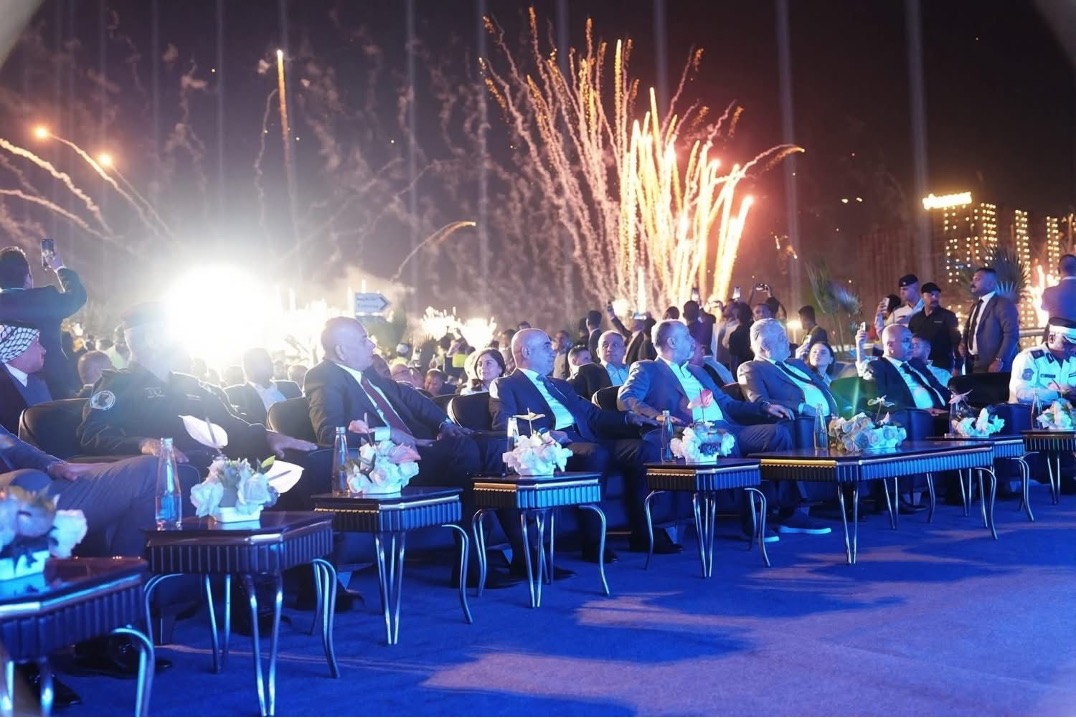
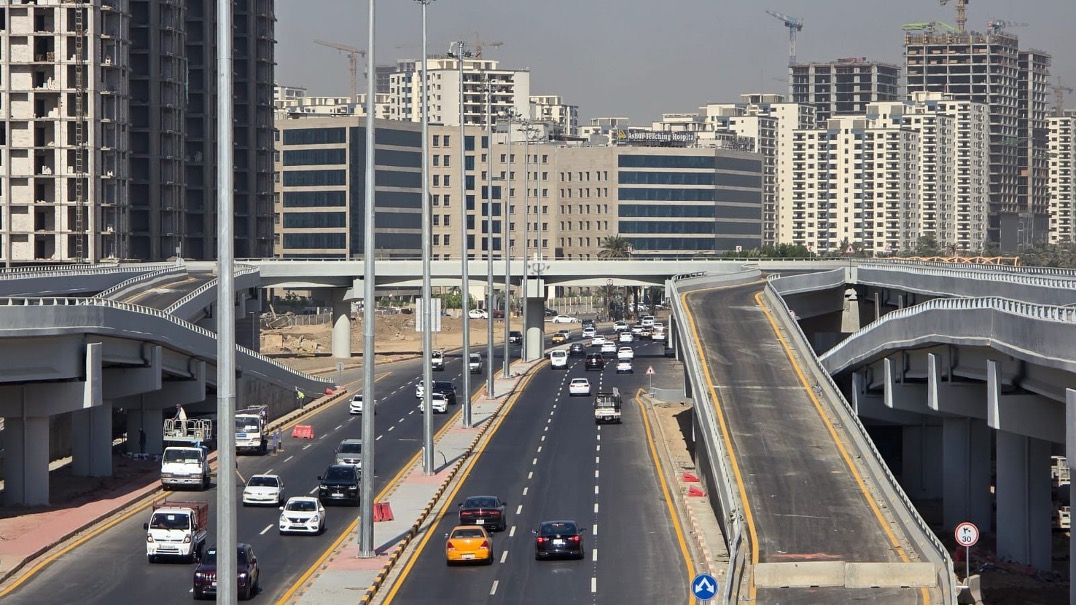

















Design and implementation of Al-Tala'a Bridge and linking it to Al-Baijia Street
Client: Ministry of Construction, Housing and Public Municipalities / Department of Roads and Bridges
POC: The project is located in the city of Karkh in Baghdad, starting from the Tala’a intersection through the Jiyeh to the intersection of the meeting
About the project: The Tala’a Bridge project aims to create a vital flyover over the Tala’a Square intersection, a very busy area with daily traffic, and connect it to Al-Baijiya Street (Street 80) near the Alturath College, Sheikh Maarouf Cemetery and Muthana Airport, in the western part of Baghdad (AlKarkh).
The project will form an important and new hub for the movement of vehicles by linking the Bab al-Mu’azzam area with the Mansour area in Baghdad.
The project consists of two parts, the first is the construction of the Al-Baijiya Bridge which connects Airport Street with the road leading to Al-Liqa Square, and the second bridge extends from Al-Tala’i Square through 14th of July Street (Muthana Airport Road).
The main objective is to secure smooth traffic and connect Bab Al-Moazzam in Rusafa through Al-Tala’a Interchange and transfer traffic to Al-Liqa Intersection in Al-Mansour neighborhood. This initiative forms an integral part of a broader effort to alleviate traffic congestion within the city.
Project Description:The project includes the design and implementation of major infrastructure, including several flyovers, along with all connected roads and approaches. The project contains 45,600 m2 of concrete bridges, 35,500 m2 of approaches, 45,000 m2 of paving over bridges,150,000 m2 of asphalt roads, and about 42,000 m2 of gardens and walkways.
Project Benefits: The project constitutes an important and new road for the transfer of vehicle traffic by linking the Bab Al-Mu’azzam area with the Mansour area in Baghdad. The project will provide fast traffic transfer from Rusafa from Bab al-Mu’adham to Mansour and from there to the Mansour Expressway connecting Baghdad to the western part of Iraq.
Implementation Strategy: The project was meticulously planned, in collaboration with specialized design and implementation consultants. Integrated tasks have been assigned to all trusted supporters to support strict time control. To accelerate progress within the contractual schedule, all parties committed to providing comprehensive support, enabling 24-hour continuous work with three daily shifts.
Challenges and solutions: The project faces a major challenge of heavy daily traffic and significant conflicts within the above- and underground work area, including structures and buildings including Sheikh Maarouf Cemetery, electricity cables, water and sewage pipes, and communication cables owned by various entities. The job site is in the center of Baghdad with very difficult access possibilities to the site. The biggest challenge is transporting building materials and concrete beams through the very busy city. A plan has been developed Cooperation with all parties includes conducting a comprehensive conflict survey, and coordination between the relevant authorities, which entails temporarily suspending service, moving the models to new locations if possible, creating parallel work areas, and scheduling off-peak work, all of which aim to effectively mitigate disruptions and traffic stops. In addition, concrete roads are constructed. An alternative to two-way traffic flows smoothly throughout the project.